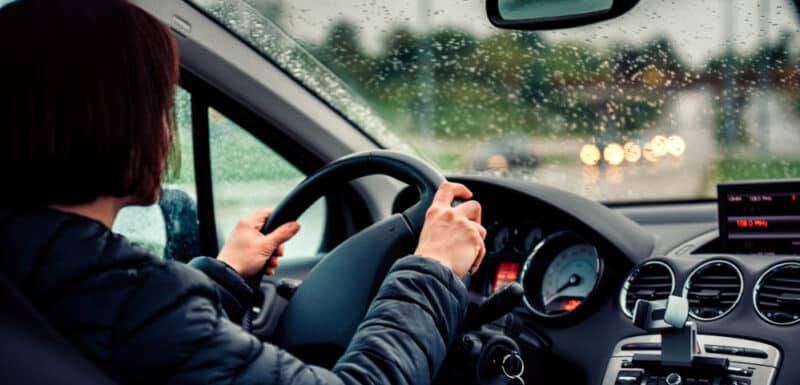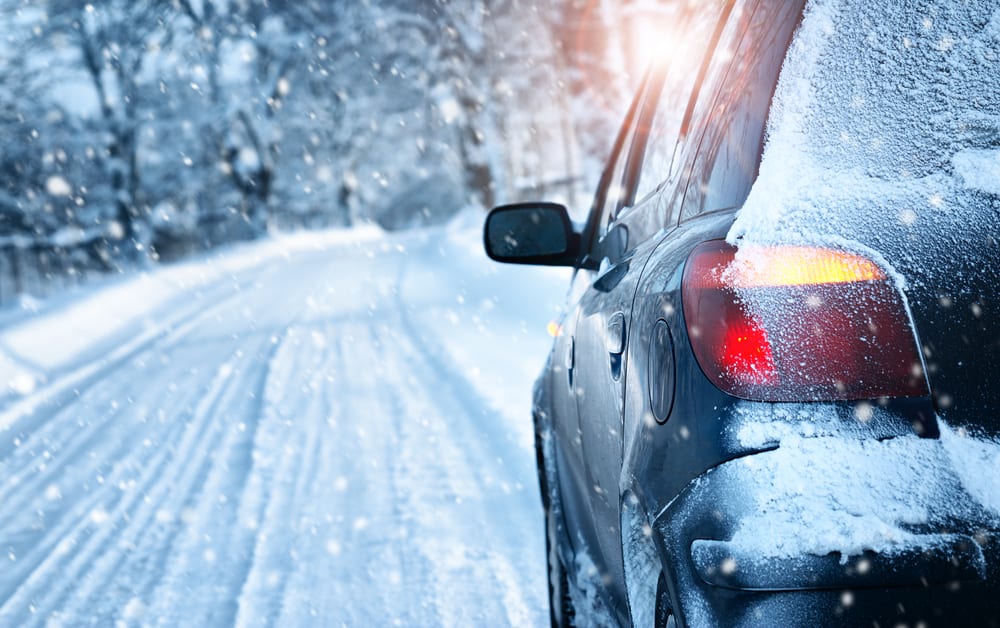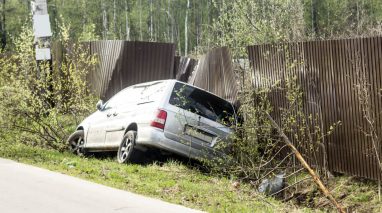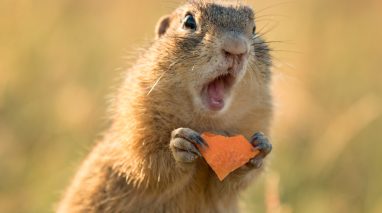Blog
Seasonal Driving Hazards of the Pacific Northwest

Weather has earned the right to be one of the top topics of conversation in the Pacific Northwest, and for good reason. It might be snow, ice, sleet, or rain (especially rain) dominating the discussion. All of these and other conditions cause driving hazards that make full coverage car insurance and roadside assistance important topics.
Here’s what you’re likely to be up against seasonally as a driver in the great PNW.
Driving in the Rainy Season in the PNW (Mostly October-June)
Of course, we have to start by mentioning rainfall — because a lot of it falls. As one example of how wet the northwest season can be, Washington State gets 73 inches of annual rainfall, or about double the 38 inches the rest of the country sees. Oregon also gets more rain than the national average, though not nearly as much as the Evergreen State.
Most of this rain falls in the PNW between the months of October and June. That doesn’t mean that summer drizzles are unheard of, but you do get a bit more of an umbrella break during vacation season.
As a motorist, rain means slick pavement, visibility challenges, and the need for good tires, brakes, and windshield washer pads. You should also maintain at least five seconds of distance between your vehicle and the one ahead of you. That means that when the vehicle in front of you passes a marker up ahead, you should pass it yourself five or more seconds later.
Interestingly, 46 percent of weather-related crashes occur during rain, while only 17 percent can be blamed on snow or ice. This shows that more drivers recognize traditional winter hazards and drive cautiously, but rain is likelier to catch people by surprise.
Snow, Ice, and Sleet Affect Roads in the PNW (November Through March)
Winter months in the PNW are relatively mild. Rain is more of a threat. The “glass half full” reading on typical regional weather conditions is that snow and ice aren’t as much of a driving challenge as elsewhere in the country.
The “glass half empty” reading is that this relative lack of typical winter weather can leave drivers unprepared to handle the rare blizzard or black ice hazard. And slippery roads and whiteout conditions do occur in the PNW.
Your first line of defense is to stay alert. If you hear of a winter storm approaching, stay off the road if possible. Once again, keep your tires, brakes, and wipers in prime condition.
It’s also important to pack survival gear. If you get stranded during a winter storm, safety forces might be unable to get to you immediately, so carry water bottles, blankets, road flares, dry food, flashlights and batteries, and other necessities. Make sure your phone is fully charged and that loved ones know where you are.

PNW Deer-Car Collisions (Year-Round, but Especially Mating Season, October through June)
You probably already know there are a lot of deer in the PNW. If you haven’t hit one, you probably know at least one person who has. They are especially active at dusk and dawn.
Compounding that challenge, deer are most on the move during mating season, October through January or so. Those months are among the darkest, so drivers are likelier to be sharing the road with love-seeking deer.
While Bambi and his kind are the most common animal encountering our cars (there were 6,000 car-deer collisions in Oregon alone, one recent year), deer are not the only threat.
The PNM is also home to grizzlies and black bears, cougars, bobcats, wolves, and moose. While these wildlife are less commonly hit by cars, the threat rises if you’re driving far from the region’s cities.
Other seasonal Pacific Northwest driving hazards can include wildfire smoke, landslides, floods, and even tsunamis, depending on location. You get the idea. Now you need some tools to protect yourself and loved ones from these seasonal threats.
Here are a couple.
Full Coverage Car Insurance Can Minimize the Impact of Weather Damage
To save money, you can buy minimal car insurance. This consists of liability coverage to protect the finances of the other driver and passengers if you’re at fault for an accident. Unfortunately, liability insurance doesn’t cover the cost of repairing or replacing your own vehicle in such an incident. Nor will it pay for the thousands of dollars in damages a car-deer collision can cause.
That’s what full coverage is for. The cornerstones of full coverage insurance are collision car insurance and comprehensive auto insurance benefits.
Collision Car Insurance
Collision insurance covers the cost of repairing or replacing your own vehicle or personal property after an accident, regardless of who is at fault. That includes accidents for which you were at fault, hit and run crashes, or collisions with uninsured or underinsured drivers.
Comprehensive Auto Insurance
Road collisions aren’t the only way your car can be damaged or totaled. It could catch fire in your garage, get swept away in a flood, or be vandalized or stolen, among other causes of damage or loss. This is all covered by your comprehensive benefits. By the way, comprehensive will also pay for damages from wildlife collisions.
Roadside Assistance to the Rescue in PNW Driving Hazards
Most of the seasonal Pacific Northwest driving hazards mentioned can easily result in your vehicle sitting on the side of the road, out of commission. You might need a tow. Or maybe you (or a loved one) need gasoline, a tire change, a battery charge, or a water hose or quick repair that only a mechanic can make. That’s what roadside assistance is for.
If you add this to your car insurance policy, you’ll be given a toll-free phone number you can call 24 hours a day, including nights, weekends and holidays. You’ll get a tow truck to take you to the nearest service garage, or repairs can be made or assistance given then and there.
If roadside assistance isn’t already part of your family’s car insurance policy, consider calling your insurance agent today.
Find Affordable Car Insurance in the PNW Today
Call Vern Fonk Insurance at (800) 455-8276 for all your car insurance needs in the PNW. You can also visit an agent at a nearby Vern Fonk Insurance office location, or get a quick quote online.


